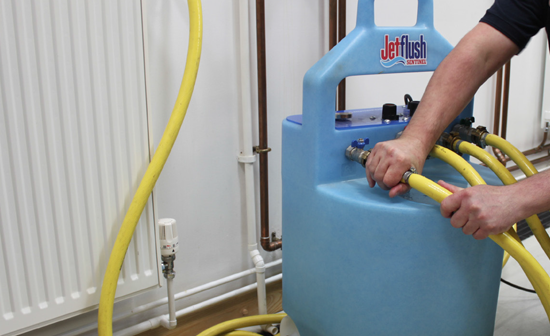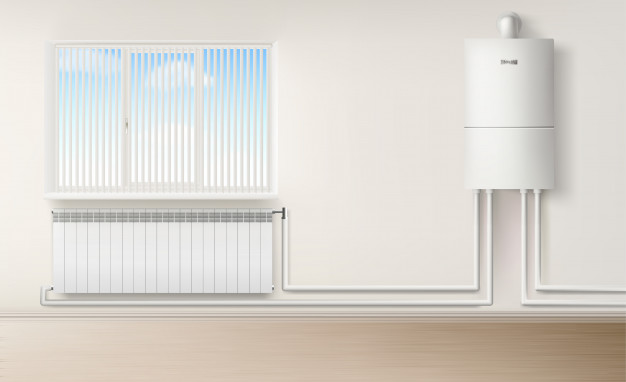A power flush is an absolute season clean for your central heating system provided to make your system running like new. The blend of specialised chemicals and water is used to pump through the radiators to clean and remove all the debris that has increased over time. The process of power flushing involves smoothly eliminating trash such as limescale deposits, corroded element and mud from the central heating system and cleaning the radiators. As the name might mean the application of immense pressure, but this is not the problem. The parts of your central heating system will be safe from any damage. Instead of high pressure, the power flushing technique is designed to use a large amount of water blended with special chemicals to evenly clean the radiators. Using power flushing on your heating system can prevent damage to your boiler by removing mud from the heating system. It is also important to look for clear signs that your heating system requires a power flush.
 |
| Image source - www.rennils.co.uk |
There are some major signs that your system needs a power flush. Take a look:
- If your boiler is causing knocking vibrations when running hard, or if your radiators have frozen areas or you need to drain your radiators often, this may be the situation when power flushing is required.
- Besides the above indication, there are many signs that power flushing may benefit your heating system and save you money as well. The next indication is if you notice that your heating system is operating slow to heat, your radiators leak frequently, or if you have found any cold spot in the middle of the radiators, the power flushing possibly the best solution to fix the problem.
- Power flushing your heating system is also usually required if you are installing a new boiler and if you are spending over the probabilities for your heating bill. If you are experiencing any of these situations, you should look into the probability of this option. By flushing your radiators inside, you can enhance heat output, prevent additional caustic damage, and maintain your boiler in the most effective condition. If power flushing can increase the performance of your heating system and help you to save money and prevent further possible problems, then it must be worth considering.
- When air is in your central heating system, it destroys the heating system internally creating iron oxide sludge coats in radiators and other heavy iron components. The mud sticks to all coverings and makes the early failure of pumps, boiler heat exchangers, valves radiators, and hot water heating loops. This reduces overall productivity and wastes expensive fuel. Power flushing your central heating system will clean the pipes, pump, boiler and all the parts in a heating system and removes damaging sludge and debris.
- More serious signs are many strange noises arising from your boiler, or if your heating pump requires replacing or repairing various times in reasonably fast continuation.
Power flushing can solve several heating problems and prevent boiler and pump failure. It can provide more economical fuel bills due to an improvement in boiler efficiency. Besides, choosing a qualified heating engineer to carry out this job is crucial because an experienced approach and enough skills are required to maximise the effectiveness of the work. You may find that the longer-established companies use regular techniques to concentrate on problem areas so that you are provided with an optimised central heating system that would not create any difficulty during the cold winter months. When hiring a technician to carry out a power flushing job on your central heating system, make sure that their work is completely ensured for a year.




